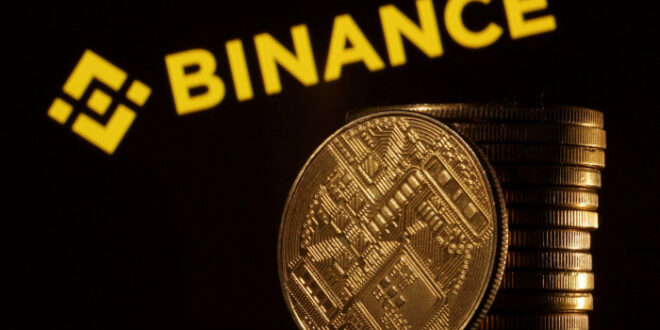In a groundbreaking move, Thailand is exploring the possibility of launching a Bitcoin pilot project, with major backing from Binance, one of the world’s leading cryptocurrency exchanges. This initiative could pave the way for wider adoption of digital currencies in Southeast Asia, marking Thailand as one of the first nations in the region to experiment with Bitcoin in a structured, government-endorsed framework.
The Pilot Project: What We Know
The Thai government, in collaboration with Binance, is currently considering a pilot project aimed at integrating Bitcoin into the country’s financial ecosystem. The pilot will explore how the cryptocurrency can be used for various purposes, including payments, investments, and possibly as an alternative to the Thai Baht for certain transactions.
The Thai government has not yet disclosed specific details about the pilot, including its scope, duration, and timeline, but the discussions are already generating significant interest in the crypto world. If successful, the pilot could lead to wider acceptance of Bitcoin in both retail and institutional settings across the country.
Binance’s Role in the Pilot
Binance, one of the largest and most influential cryptocurrency exchanges globally, will play a pivotal role in this initiative. The exchange has been actively working to forge partnerships with governments and financial institutions around the world to push for wider cryptocurrency adoption.
In Thailand’s case, Binance is expected to provide technical and operational support for the pilot project, assisting in areas such as infrastructure development, regulatory compliance, and user education. Binance’s backing is crucial, as it adds credibility and expertise to the initiative, helping to navigate potential regulatory challenges and ensure the project’s success.
Why Thailand?
Thailand’s decision to explore Bitcoin and cryptocurrency adoption is not entirely surprising. The country has been relatively progressive in its approach to digital assets, having established clear regulations for cryptocurrency trading and ICO (Initial Coin Offerings). Thailand’s regulatory body, the Securities and Exchange Commission (SEC), has already taken steps to ensure a safe and secure environment for cryptocurrency businesses and investors.
Additionally, Thailand’s fintech sector has been rapidly growing, with increasing interest in blockchain technology and decentralized finance (DeFi). The government’s interest in a Bitcoin pilot project is likely motivated by the desire to modernize the financial system and offer an alternative to traditional banking, especially as the region grapples with the economic challenges of the post-pandemic world.
The Benefits of a Bitcoin Pilot
If the pilot project moves forward, Thailand stands to benefit in several ways:
- Financial Inclusion: One of the primary goals of the project is to improve financial inclusion in Thailand. By incorporating Bitcoin into the financial system, the government could help people who are unbanked or underbanked gain access to financial services. Cryptocurrencies could offer a cost-effective and efficient alternative to traditional banking services, especially in rural or remote areas.
- Investment Opportunities: The pilot project could provide Thai citizens with new investment opportunities, especially as Bitcoin continues to gain popularity among investors worldwide. By officially recognizing Bitcoin, Thailand could create a legal and regulated framework for crypto-related investments, giving individuals and institutions more confidence to engage in the market.
- Economic Innovation: The pilot could serve as a testing ground for blockchain-based innovations, from digital payments to supply chain solutions. The implementation of Bitcoin as a recognized asset could drive forward the development of new financial products, services, and platforms within Thailand’s economy.
- Attracting Crypto Industry Investments: By supporting a Bitcoin pilot project, Thailand could attract more crypto companies and startups, positioning itself as a leading hub for blockchain and cryptocurrency innovation in Asia. This could lead to job creation, economic growth, and greater international recognition for Thailand as a crypto-friendly nation.
Potential Challenges
While the potential benefits are significant, the Bitcoin pilot project could also face challenges:
- Regulatory Hurdles: Even though Thailand has established a regulatory framework for cryptocurrencies, integrating Bitcoin into the broader financial system could still raise complex regulatory issues. These include questions about taxation, anti-money laundering (AML) policies, and consumer protection.
- Volatility: Bitcoin’s price volatility remains a significant challenge. While the currency has gained immense popularity, it can experience significant swings in value, which could complicate its use in daily transactions and affect consumer confidence.
- Public Adoption: While interest in cryptocurrencies is growing, Thailand’s general population may still have reservations about adopting Bitcoin as a mainstream payment method. Overcoming skepticism and educating the public about the benefits and risks of cryptocurrency will be essential to the success of the pilot project.
- Infrastructure Development: A successful Bitcoin integration will require substantial infrastructure development. This includes setting up payment gateways, creating wallet systems, and ensuring that businesses can accept Bitcoin payments seamlessly. This may involve collaboration with financial institutions and tech companies to build the necessary ecosystem.
The Road Ahead
While the pilot project is still in its planning stages, the partnership between Thailand and Binance signals a positive step forward in the country’s journey toward cryptocurrency adoption. If successful, the initiative could serve as a model for other nations in Southeast Asia and beyond, demonstrating the potential of Bitcoin and blockchain technology in modern financial systems.
The Thai government has shown a willingness to embrace financial innovation, and the involvement of Binance, with its global expertise and resources, is likely to bring the project to life in a way that benefits the country’s economy and its people.
As the project progresses, Thailand’s Bitcoin pilot could become one of the most closely watched experiments in the world of cryptocurrency regulation and financial inclusion, offering valuable insights into how digital currencies can be integrated into mainstream economies.
Thailand’s consideration of a Bitcoin pilot project with support from Binance marks an exciting development for both the cryptocurrency industry and the country’s economy. The project has the potential to drive financial inclusion, stimulate innovation, and position Thailand as a leading player in the digital currency space. However, challenges such as regulatory compliance, market volatility, and public adoption will need to be addressed for the project to succeed. As Thailand moves forward with this ambitious initiative, the global cryptocurrency community will be watching closely to see if the pilot project can pave the way for broader adoption of Bitcoin in traditional financial systems.
 Business Sandesh Indian Newspaper | Articles | Opinion Pieces | Research Studies | Findings & News | Sandesh News
Business Sandesh Indian Newspaper | Articles | Opinion Pieces | Research Studies | Findings & News | Sandesh News



